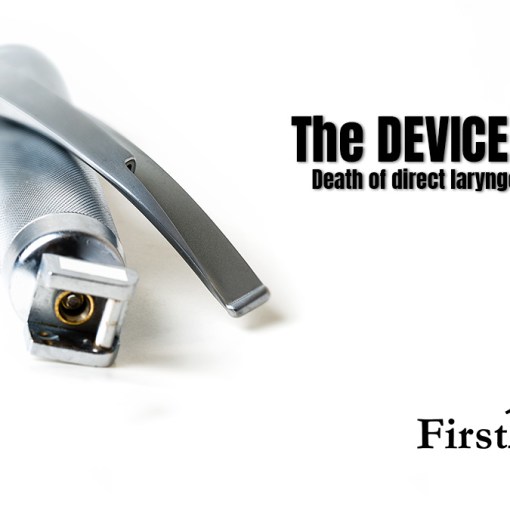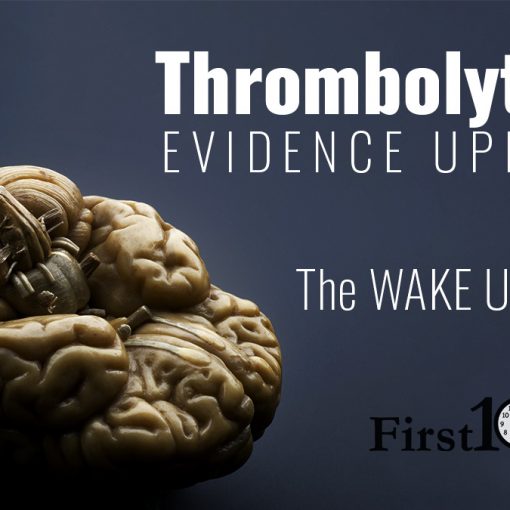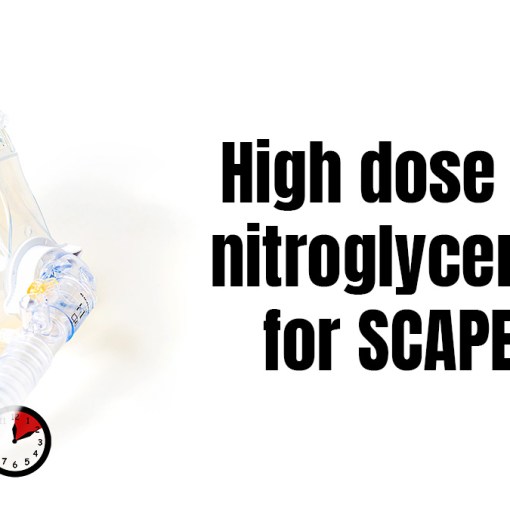“Medical clearance” for psychiatric patients has long been a problem for emergency medicine. Despite a clear consensus in the medical literature and guidelines that routine laboratory testing is not required for psychiatric patients, many hospitals are still requiring this testing. (I know from first hand experience.) This is harmful to our patients, results in unnecessary delays in care, and is incredibly wasteful. I think we need to stop the practice as soon as possible.
Guidelines
Here are some highlights from the most relevant guidelines on the topic of laboratory testing for psychiatric patients:
ACEP clinical policy (2017):1 (Available here)
- “Do not routinely order laboratory testing on patients with acute psychiatric symptoms. Use medical history, previous psychiatric diagnoses, and physician examination to guide testing.”
- “Use individual assessment of risk factors to guide brain imaging in the ED for patients with new-onset psychosis without focal neurologic deficit.”
Older ACEP clinical policy (2006):2 (Available here)
- Do the results of a urine drug screen for drugs of abuse affect management in alert, cooperative patients with normal vital signs, a noncontributory history and physical examination, and a psychiatric complaint?
- “Routine urine toxicologic screens for drugs of abuse in alert, awake, cooperative patients do not affect ED management and need not be performed as part of the ED assessment.”
- “Urine toxicologic screens for drugs of abuse obtained in the ED for the use of the receiving psychiatric facility or service should not delay patient evaluation or transfer.”
- Does an elevated alcohol level preclude the initiation of a psychiatric evaluation in alert, cooperative patients with normal vital signs and a noncontributory history and physical examination?
- “The patient’s cognitive abilities, rather than a specific blood alcohol level, should be the basis on which clinicians begin the psychiatric assessment.”
- “Consider using a period of observation to determine if psychiatric symptoms resolve as the episode of intoxication resolves.”
American Academy of Pediatrics (AAP):3
- “The current body of literature supports focused medical assessments for ED psychiatric patients, in which laboratory and radiographic testing is obtained on the basis of a patient’s history and physical examination. Routine diagnostic testing generally is low yield, costly, and unlikely to be of value or affect the disposition or management of ED psychiatric patients.”
American Psychiatric Association (APA):4
- “APA suggests (2C) that the initial psychiatric evaluation of a patient include documentation of the rationale for clinical tests… The decision to do laboratory studies and other clinical tests, such as imaging studies, electrocardiography (ECG), or electroencephalography (EEG), should be based on the likelihood that the test result will alter diagnostic or treatment-related decision making. The costs of “routine” testing, in financial terms and in unneeded evaluations for false positive results, are unlikely to offset the benefits of untargeted testing.”
- “The physical examination may be performed by the psychiatrist, another physician, or a medically trained clinician.”
Reviews
There is a BestBETS review of this topic. Most of the papers are included in my review below. Their conclusion is “the routine use of mandatory screening studies with a normal medical history or examination in the Emergency Department does not affect a patient’s morbidity, mortality or subsequent clinical disposition.”.5
Tenenbein performed a systematic review looking specifically at the urine drug screen. He identified 1601 adult emergency department patients, 3509 trauma patients, 494 psychiatric patients, and 694 pediatrics patients. He found that the urine drug screen had no impact on the management of these patients.6
Another systematic review by Chennapan and colleagues reviewed 60 trials. Based on their review, they come up with guideline recommendations, which include:7
- Non-elderly, healthy adult patients with complaints consistent with previous presentations of known psychiatric disease and who can provide a coherent history likely do not require screening for medical stability beyond a routine physical examination and history.
- Urine drug screen should not be routinely performed because it rarely changes patient disposition. Clinicians may consider testing patients who are unable to provide a history or have a recent onset of acute psychosis.
The evidence
At an institution where all patients being admitted to the psychiatry service got an extensive workup, including complete blood count with differential, complete metabolic panel (electrolytes and liver function tests), thyroid stimulating hormone, free T4, B12, folate, urine drug screen, and urine pregnancy test for females, 502 charts were reviewed. Only a single patient (0.2%) had any abnormality that required urgent intervention, and that patient was obviously unwell clinically, with a fever and tachycardia. (She had an elevated blood glucose and a high anion gap).8
Another study prospectively looked at a sample of 598 psychiatric patients. After history and physical, the emergency doctor ordered labs in 155 (26%). The psychiatric service ordered subsequent labs in another 191 (44%) patients. Only a single patient (0.5%) had results that changed disposition. That was a positive tylenol level. However, they don’t give us enough details to know if that result was obvious clinically or not.They note that $37,682 was spent on testing that was probably not necessary.9
Another chart review of 352 patients presenting with psychiatric complaints looked at the test characteristics of history, physical, and laboratory testing. In this group, 19% were found to have acute medical issues. Most of the acute medical issues were not all that urgent, such as constipation, thrush, vaginitis, contusions, and hypertension. However, there were a few important diagnoses, such as drug overdose. History was the most accurate overall, and identified 61 of the 65 medical problems (94% sensitive). Physical exam was 51% sensitive and vital signs on their own were 17% sensitive. Lab testing was the worst, with a sensitivity of only 20%. The 4 patients whose medical issues were not obvious on history were a patient with a documented fever whose diagnosis was cellulitis, and 85 year old dementia patient with a clinically irrelevant low hematocrit, and 2 patients with asymptomatic hypokalemia of unclear significance and whose only “management change” was a referral for a repeat lab test in the future.10
In another retrospective look at 212 psychiatric patients who all had a full work up including labs based on a protocol, there was not a single lab result that changed medical management.11
Tintinali performed a chart review of 298 voluntary psychiatric admissions from the emergency department. There were 12 patients who had medical issues that were treated, and they say that 10 of those were obvious from the history and physical exam. That would leave 2 missed patients. They don’t give us details about these 2 patients, but hypertension and polycythemia were 2 diagnoses that apparently needed “acute medical treatment”, neither of which are usually acute medical issues. Another miss was a patient with multiple sclerosis, which we wouldn’t identify with any of the testing we do.12
In a prospective analysis of 375 emergency department patients with a primary psychiatric complaint who also had lab tests drawn, 34% had abnormal lab values. The vast majority of the abnormal tests were urine drug screens. Only 4 patients had lab findings that were not obvious by clinical evaluation. All 4 were positive urine cultures, which by definition (they had no symptoms) were asymptomatic bacteriuria, and therefore should be counted as false postives.13
One institution uses a screening tool to “clear” psychiatric patients. They pass if: 1) they have normal vital signs, 2) they have a prior psychiatric history or are younger than 30, 3) are oriented times 4 or have a Folstein >23, 4) have no evidence of an acute medical issue, and 5) have no visual hallucinations. Using a chart review to evaluate this tool in 485 patients, they found 0 patients that needed urgent medical care after being transferred to the psychiatric unit. There were a few patients who were transferred back to the ED and a few who had lab testing done by psychiatry, but none were misses. (For example, one patient developed chest pain while admitted, and another patient with known HIV developed a fever on day 11 of his admission). In other words, this screening tool with no lab testing worked perfectly.14
April 2021 Update: In a chart review of 17,000 patient visits in which 33,439 acetaminophen and salicylate assays were sent for screening purposes prior to psychiatric admission, not a single case of toxicity was diagnosed. The authors conclude the practice is unnecessary and wasteful. 18
Pediatric specific evidence
Donofrio and colleagues looked at the charts of 1082 pediatrics patients who presented to a pediatric emergency department for a medical clearance before a possible involuntary psychiatric hold. Lab tests were ordered in 871 of the visits, resulting in a total of 13,725 total tests being run. There were 7 patients (0.8%) with abnormal lab tests who also had a disposition change. However, 6 of these patients had obvious abnormalities on the history and physical. Thus, the only patient with a disposition change was the 1 patient (0.1%) who had a positive pregnancy test but wasn’t aware that she was pregnant. However, she had no medical issues, and therefore there was no reason for the disposition to change. There were another 50 patients with abnormal labs who had management changes. Once again, more than half of these patients were obvious on history and physical. They don’t give us details about the other patients, but they say that “the most common management changes were further evaluation for possible urinary tract infection and the prescription of antibiotics”. If the history and physical were negative, these would by definition be false positives or asymptomatic bacteriuria, and therefore should not have resulted in any management change. Therefore, although they aren’t clear in their presentation of this data, I think there were exactly 0 patients in whom lab tests resulted in a change that wasn’t already obvious from the history and physical. They are clear that despite being the most commonly ordered test (done in 788 patients), urine toxicology resulted in exactly 0 management or disposition changes.15
The urine drug test is a topic of its own. It is known to be inaccurate, with a very high rate of false positives and false negatives. There is fairly wide agreement among the medical toxicology community that the urine toxicology screen has no role in the management of emergency department patients.2,6 There is one chart reviewing specifically looking at the value of urine tox screens in 652 pediatric patients. They say that “we can reasonably conclude that the disposition of patients from the ED after psychiatric assessment was not influenced by the results of the UTS.”16 Shihabuddin and colleagues also looked at the urine drug screen in 875 pediatric patients, and although it was positive in 11% (with no gold standard to know how many were false positives), it resulted in exactly 0 changes in management.17
Bottom Line
There are certainly medical causes of psychiatric issues. Psychiatric patients are at high risk for a number of other medical issues. We need to assess these patients carefully, especially when they are unable to provide us with a clear history. However, there is clearly no role for routine testing. The history and physical will catch almost all important medical issues. Policies that require testing before patients are accepted by psychiatric teams hurt our patients, waste time and money, and take important resources away from other sick patients in the emergency department. This position is supported both by evidence and by guidelines from multiple major medical associations.
You can find more First10EM evidence based medicine deep dives here.
Other Resources
EMCases #85 Medical Clearance of the Psychiatric Patient
Canadiem: What is required for ‘medical clearance’ before referral to the psychiatry service?
EMDocs: Medical Clearance of Psychiatric Patients: Pearls & Pitfalls
References
- Nazarian DJ, Broder JS, Thiessen MEW, et al. Clinical Policy: Critical Issues in the Diagnosis and Management of the Adult Psychiatric Patient in the Emergency Department. Annals of Emergency Medicine 2017;69(4):480–98.
- Lukens TW, Wolf SJ, Edlow JA, et al. Clinical policy: critical issues in the diagnosis and management of the adult psychiatric patient in the emergency department. Ann Emerg Med 2006;47(1):79–99.
- Chun TH, Mace SE, Katz ER, AMERICAN ACADEMY OF PEDIATRICS, COMMITTEE ON PEDIATRIC EMERGENCY MEDICINE, AND AMERICAN COLLEGE OF EMERGENCY PHYSICIANS, PEDIATRIC EMERGENCY MEDICINE COMMITTEE. Evaluation and Management of Children and Adolescents With Acute Mental Health or Behavioral Problems. Part I: Common Clinical Challenges of Patients With Mental Health and/or Behavioral Emergencies. PEDIATRICS 2016;138(3):e20161570–e20161570.
- Practice Guidelines for the Psychiatric Evaluation of Adults, Third Edition [Internet]. In: The American Psychiatric Association Practice Guidelines for the Psychiatric Evaluation of Adults. American Psychiatric Association; 2015 [cited 2020 Jan 28]. Available from: http://psychiatryonline.org/doi/10.1176/appi.books.9780890426760.pe02
- Salter, Nigel. Medical screening of patients requiring psychiatric admission in the ED. BestBETs [Internet] 2014;Available from: https://bestbets.org/bets/bet.php?id=2658#
- Tenenbein M. Do you really need that emergency drug screen? Clin Toxicol (Phila) 2009;47(4):286–91.
- Chennapan K, Mullinax S, Anderson E, et al. Medical Screening of Mental Health Patients in the Emergency Department: A Systematic Review. J Emerg Med 2018;55(6):799–812.
- Janiak BD, Atteberry S. Medical Clearance of the Psychiatric Patient in the Emergency Department. The Journal of Emergency Medicine 2012;43(5):866–70.
- Parmar P, Goolsby CA, Udompanyanan K, Matesick LD, Burgamy KP, Mower WR. Value of mandatory screening studies in emergency department patients cleared for psychiatric admission. West J Emerg Med 2012;13(5):388–93.
- Olshaker JS, Browne B, Jerrard DA, Prendergast H, Stair TO. Medical clearance and screening of psychiatric patients in the emergency department. Acad Emerg Med 1997;4(2):124–8.
- Korn CS, Currier GW, Henderson SO. “Medical clearance” of psychiatric patients without medical complaints in the Emergency Department. J Emerg Med 2000;18(2):173–6.
- Tintinalli JE, Peacock FW, Wright MA. Emergency medical evaluation of psychiatric patients. Ann Emerg Med 1994;23(4):859–62.
- Amin M, Wang J. Routine laboratory testing to evaluate for medical illness in psychiatric patients in the emergency department is largely unrevealing. West J Emerg Med 2009;10(2):97–100.
- Shah SJ, Fiorito M, McNamara RM. A screening tool to medically clear psychiatric patients in the emergency department. J Emerg Med 2012;43(5):871–5.
- Donofrio JJ, Santillanes G, McCammack BD, et al. Clinical utility of screening laboratory tests in pediatric psychiatric patients presenting to the emergency department for medical clearance. Ann Emerg Med 2014;63(6):666-675.e3.
- Fortu JMT, Kim IK, Cooper A, Condra C, Lorenz DJ, Pierce MC. Psychiatric patients in the pediatric emergency department undergoing routine urine toxicology screens for medical clearance: results and use. Pediatr Emerg Care 2009;25(6):387–92.17.
- Shihabuddin BS, Hack CM, Sivitz AB. Role of urine drug screening in the medical clearance of pediatric psychiatric patients: is there one? Pediatr Emerg Care 2013;29(8):903–6.
- Farkas A, Lipanot K, Sherman K. Routine Laboratory Screening for Acetaminophen and Salicylate Ingestion in Preadmission Psychiatric Patients Is Unnecessary Annals of Emergency Medicine. 2021;
Morgenstern, J. Routine laboratory testing is not required prior to admission of psychiatric patients, First10EM, August 10, 2020. Available at:
https://doi.org/10.51684/FIRS.14207






3 thoughts on “Routine laboratory testing is not required prior to admission of psychiatric patients”
Old post here
https://broomedocs.com/2013/03/mental-health-assessment-in-the-ed-by-dr-andrew-webster/
I have had this fight at every hospital I have ever worked at. In my opinion, a pregnancy test is mandatory on all people with uteri, and I consider a fingerprick blood glucose a vital sign as essential as a pulse rate. If those are fine, and you don’t have anything odd on h&p, go to the place you’ll get the help you need and save your money to pay them.